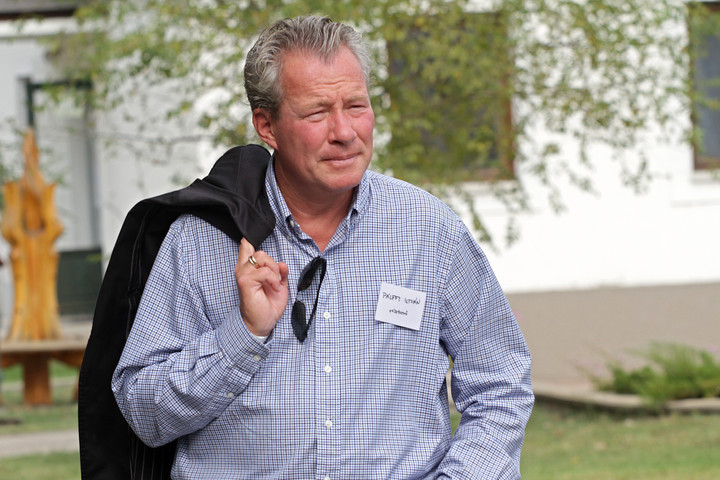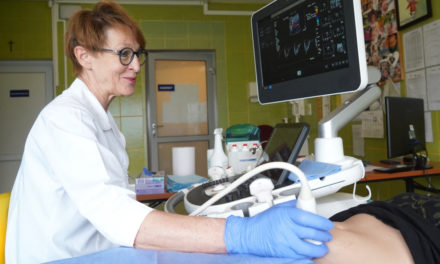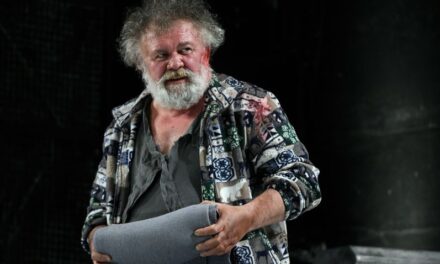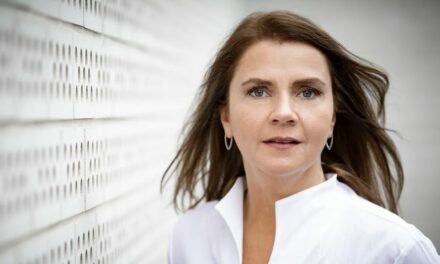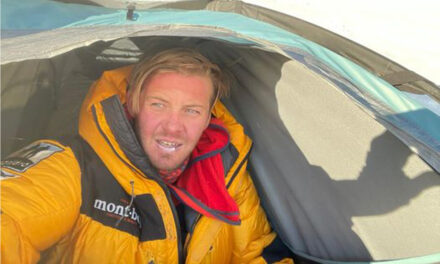It is important to clarify that the objectivity with which a good journalist works on a topic does not - and cannot - exclude his worldview, and cannot bracket his ideological position. Everyone looks at the world somehow, from some perspective, interprets it from some point of view - says István Pálffy, who has been hosting Napi Aktuális on Hír TV since the end of August.
The former news reporter for Tények on TV2 was a parliamentary representative of the KDNP in the 2010-2014 cycle, then worked as an international secretary in Brussels for a year, and in connection with his political career, he also reported that a few years ago he saw up close how the Soros network spread its tentacles in the European Union.
He is returning to the screen after thirteen years, and will host Hír TV's Napi current program from the end of the summer. In recent weeks, he appeared in several broadcasts of the Press Club. Did you feel camera pressure after so many absences?
You always get a little nervous when you perform in front of an audience, but I didn't struggle with serious stage fright either.
In recent years, among other things, he wrote a book, was also a member of parliament and an ambassador, but by returning to the media, he chose a relatively more limited occupation. Why did you decide that way?
Because being invited to TV is an exciting challenge in many ways. For me, it is a kind of mission to bring fresh, interesting and factual information to the viewers' homes and thereby offer them quality entertainment. A well-produced program also has a community-building effect, and I will host the Daily Current affairs with this in mind.
Nice thoughts, but surely time has not moved beyond people talking about the previous day's TV shows to each other?
A few decades ago, this was actually a more widespread phenomenon, but this does not mean that you should not make a program that viewers are happy to discuss with each other. Obviously, it is not possible to reach as many people as when there were only one or two TV channels in Hungary. However, really good factual and news programs can still be produced primarily by television, and they have the professional and technical background for this. Our common goal with the staff is for Napi Aktuelle, in addition to its defining role so far, to become even more of an exemplary standard in this genre. Various social media and platforms on the Internet can help you reach more.
Will you appear in other programs besides Napi Aktuelle? For example, in the Sajtóklub or other opinion programs, perhaps in non-political broadcasts?
Public news and politics is the environment in which I have worked as a journalist, politician and diplomat in recent decades, and I would like to stay in this field. On the other hand, I'm really in my element in news programs, my appearance in the press club was just a detour or excursion in the opinion genre.
However, it is known that the invitation was not just about hosting the show. Can you share some details about that?
Indeed, I also took on the role of a kind of coach.
What does this mysterious-sounding title mean?
It could be described as that I will try to unite and keep together the editors, journalists and the audience.
In other words, will he perform quasi-HR and PR tasks?
Not in the classical sense, as I am not an HR professional. However, due to my experience and professional background, I may be able to function effectively as an integrative, community-building personality.
It still sounds a bit mystical. Can you give an example or two of how you intend to achieve this?
Either by leading team-building sessions or by creating a good working atmosphere resulting from its professionally high-level operation. But I certainly don't want to appear presumptuous, the first and fundamental thing is the sympathy and acceptance of my colleagues, and I really hope that I will be able to achieve this.
He was just talking about the difference between opinion and news and factual programs. Does the objective nature of the latter also mean that no world view or explanation of the world can appear in them?
It is important to clarify that the objectivity with which a good journalist works on a topic does not - and cannot - exclude his worldview, and cannot bracket his ideological position. Everyone looks at the world somehow, from some point of view, interprets it from some point of view.
Without it, it would not be possible to talk meaningfully about anything, the correspondent of a press conference could, for example, start counting the pebbles on the ground without it.
What we consider important comes from our worldview, so even choosing a topic is a kind of selection. Of course, it follows from this that from a conservative or liberal point of view, people consider things to be important. But an example from Heidegger perhaps illuminates this even more: the German philosopher spoke in a lecture that if a member of a tribal society saw a desk, he would probably turn it on its side, because it would provide good cover from the enemy's arrows. This is also a valid, "objective" attitude, as it must be accepted that the worldview fundamentally determines what we consider important and valid, and how we navigate the world.
Allow me to ask a technical question. How do you see the world changing a lot since you were reporting on TV2?
Lots of it. If the TV2 news station of the late 90s was a model railway, the current Hír TV is already a serious passenger and freight transport industry. In any case, there is nothing surprising in this, since technology and the profession have changed to an amazing extent in the quarter of a century that has passed since then.
But partly because of the aforementioned technical development, televisions lost many viewers. There are many online forums, blogs, and news channels, and those who choose TV are divided among dozens of channels.
I believe the glass is half full on this issue rather than half empty. You have to seize the opportunities that arise. For example, Hír TV also has a YouTube channel and a Facebook page. It's true, it's a two-edged thing, since these platforms are in the hands of the tech giants, that is, global big capital, and if these big companies decide, they can wipe out the work of several years or decades with the push of a button. So televisions are also constantly looking for their place in today's world, but fortunately there are plenty of interesting options.
The moderation practice and even censorship of tech companies destroyed the optimism of many. The PestiSrácok went bust in the way you mentioned, thousands of uploaded materials were lost, but the same thing happened to many well-known influencers and bloggers.
That's right, but today's opportunities are not limited to platforms.
Don't forget that almost everyone has a smartphone today, so there are a lot of spectator recordings of unusual events that were previously unrecorded. Of course, professional journalists primarily have information about what kind of press event or other public event can be expected, but there are those visual elements - everyday comic and tragic scenes, as well as natural phenomena - that cannot be expected and can only be recorded by someone filming them from the window.
If a television has an audience, then such viewer materials also reach it. Returning to the issue of social media: I believe that politics should regulate these platforms at the international level. If only because they are currently making a huge profit from littering their surfaces with the contents of various media outlets, while not paying a penny for these materials.
In addition to the media, politics has also changed a lot in the past period. What is your opinion, for example, about the ordinary speaking style that the left has adopted in the Parliament?
In my opinion, this is part of a more general phenomenon. In a nutshell, the reason behind this is that global capital groups, which have become stronger in recent decades - and especially in the euro crisis of the early 2010s - are trying to maximize their influence worldwide. They take states captive, buy politicians and other layers of the social elite.
At least this is what the left-wing scandal about rolling dollars suggests.
Yes, but this story dates back much earlier. Already at the beginning of the 1990s, a strong capital concentration began in the Western financial world, on the basis of which the global liberal elite built up its media influence, as well as the informal channels through which they could control the internal affairs of some countries even by manual control.
He talks about all this as someone who has personally seen this system in action.
And so it happened. After completing my parliamentary mandate, I worked as an international secretary in Brussels for a year. Then and there it was easy to see how the Soros network was spreading its tentacles.
What did you experience?
The people of the global progressive networks - for example, Manfred Weber, who is currently the faction leader of the European People's Party, but was then a high-ranking executive - kept trying to modify our submissions according to their own taste. For example, when Fidesz prepared a family law proposal about what the people's party should represent in this matter, the mentioned cadres started the well-known pun to loosen traditional concepts and value systems. Practically the same pace is going on now, when a migration pact is pushed through an interior council in seconds and the resettlement quota system is imposed on 27 EU member states.
Let's jump back in time! After the international secretariat in Brussels, he was the ambassador of Hungary in Dublin. What challenges did these four and a half years present?
It was quite a busy period, as the great centenaries of the Irish nation fell around this time, commemorating their civil war and independence. It is interesting that this year was the 25th anniversary of the Good Friday Agreement signed in 1998. This date is significant because it was practically with this pact that the economic interests of the USA were admitted to the EU. In other words, during Bill Clinton's presidency, they created a depot that created a favorable environment for American companies, such as Google, Microsoft or Apple, to invest and exert influence.
His passion for gastronomy is known, and he has written several books on this topic. How do you rate Irish cuisine?
Unfortunately, we cannot talk about Irish cuisine as such. As in the United Kingdom, the situation is that in addition to the very poor food based on a few ingredients (for example, potatoes), dishes from international cuisine have spread.
We can't leave out the topic of sports either, especially since there was such a sensation that a Hungarian soccer player was signed to the Liverpool team for a record sum. What do you think about the signing of Dominik Szoboszlai?
I am excited and I really hope that Szoboszlai will stand his ground in the toughest championship in the world. In any case, the media has already placed their trust in him, the new Puskás Puskás is celebrating the former player of Leipzig, and he "just" has to meet this huge expectation. In any case, it does not seem that Szoboszlai was carved from wood that would be crushed to death by this burden.
Your favorite team's hay isn't bad either.
In the first round, Fradi played against the champion of the Faroe Islands, so they would not celebrate yet. We have to pull ourselves together for the second round of the Champions League qualifiers, if only because Klaksvik has not lost a point in its national championship so far.
Hungarian Nation
Featured image: MH-archiv/Andrea Kövesdi

